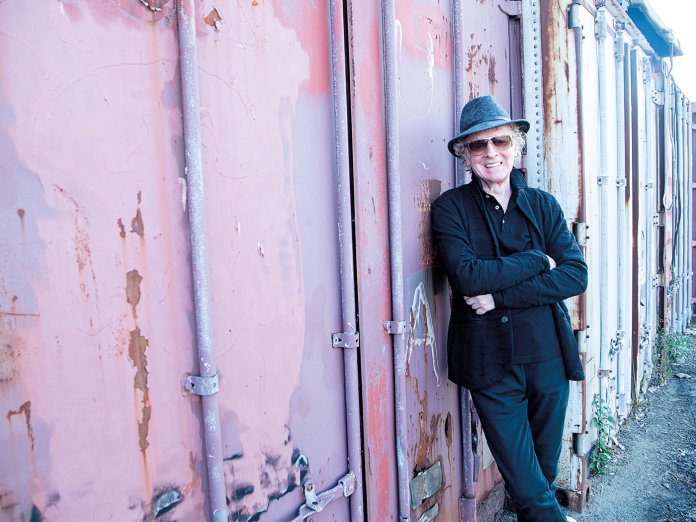Eighty-four years young in June, the indefatigable Ian Hunter is about to release the first of two new albums. A star-studded affair – including Jeff Beck’s final studio performance – it demonstrates how brightly the “true spirit of rock’n’roll” still burns within the former Mott The H...
Eighty-four years young in June, the indefatigable Ian Hunter is about to release the first of two new albums. A star-studded affair – including Jeff Beck’s final studio performance – it demonstrates how brightly the “true spirit of rock’n’roll” still burns within the former Mott The Hoople frontman.
For someone whose world was irrevocably changed by Gene Vincent and Jerry Lee Lewis, it’s little wonder that Ian Hunter has spent most of his life in America. One place in the States, however, that doesn’t exactly throb with the danger and subversion of his beloved rock’n’roll is rural Connecticut.
“It’s Surrey, only cheaper,” he admits. “We’ve been up here three, four years now. It’s a place where you get away from it all. That’s OK when you’re touring, it’s great to come home to, but then Covid started and I kind of got caught short.”
Hunter moved to the United States in 1975, just after his exit from Mott The Hoople, assisted by his American wife Trudi and propelled by Britain’s income tax rate. He wasn’t the only one. “Robert Plant was carried out of Britain on a stretcher. The Stones were living in Jamaica. We didn’t have any money, then when the money started coming in they took it all back. There was no way in hell, apart from winning the pools, that anything was gonna work [in the UK] for a working-class chap.”
The tedium of locked-down Connecticut, however, inspired Hunter to write a set of new songs, 10 of which are appearing on Defiance Part 1 this month via the revived Sun Records. Recorded with help from heavy friends such as Ringo Starr, Jeff Beck, Mike Campbell, Jeff Tweedy and Todd Rundgren, it’s high-energy, loud and impassioned. Hunter reveals that Part 2 – which is almost finished – features Beck’s final performance.
Hunter’s tale, of course, is a survivor’s story: a bassist and longtime factory worker from Shropshire, he willed himself into becoming a frontman and songwriter, finally finding fame in his thirties. With the demise of Jerry Lee Lewis last year, it’s also likely that Hunter, 84 in June – born, if only just, in a different decade to Starr, Dylan, McCartney, Townshend, Jagger and the rest – is the oldest major rock artist working today.
“I don’t like to dwell on age because it’s irrelevant,” he says. “All of a sudden, you’re 80 – ‘Jesus Christ, what is this?’ I often wondered what it would be like. Now I know. It happened so quick. If you’re a plumber, and you’ve plumbed for 50 years, you’re probably a better plumber at the end of it, though. You’ve been through all the mistakes and all the rest of it. You’d have more ability and I don’t see that you would wind down. Retiring? I have no intention of that.”



